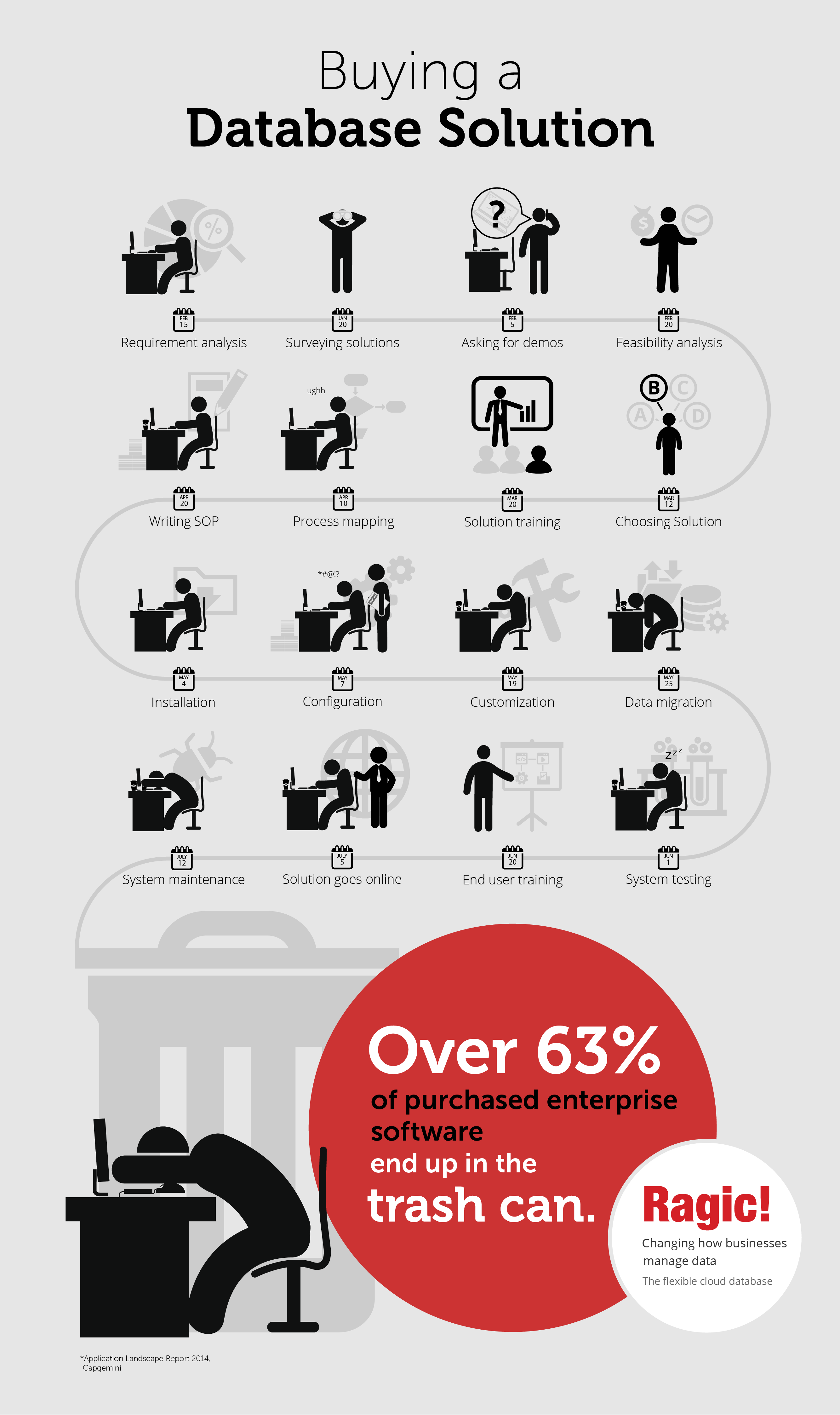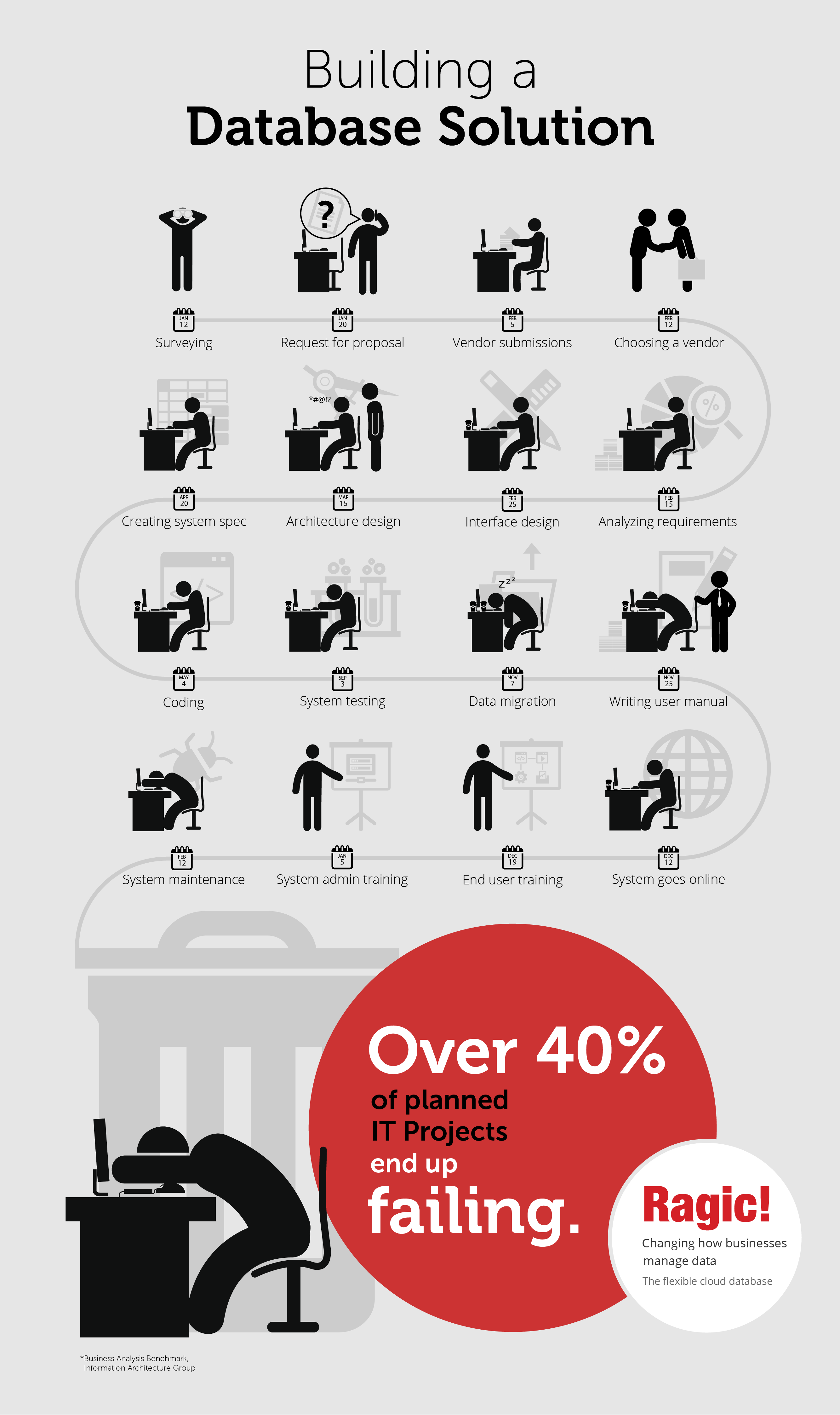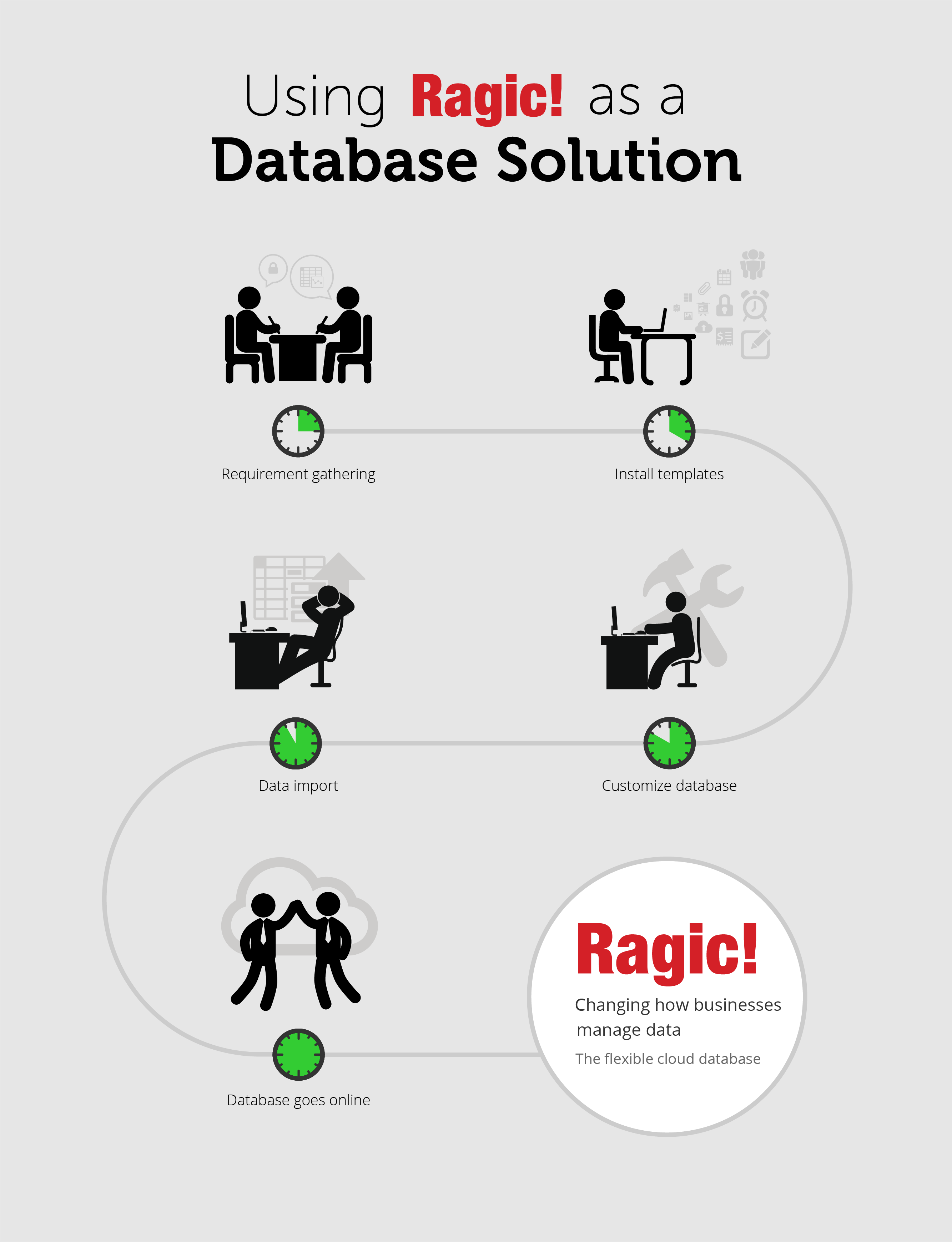
With all the enterprise technologies in the world, Excel is the world's most popular "database"? There must be something seriously wrong here.
When we look at how an enterprise adopts database systems, you have essentially two choices: A) Buy a software package; or B) Build your own system.
A) Buy a software package. If you have been down the software package road, you will know that they are notoriously big, hard to learn and costly to maintain. They're not meant to be high maintenance, but because each company has such different needs, these packages grow larger and larger trying to cover every conceivable need. You end up with a product that you can only understand 10% of what it does, and a whole lot of cost to keep this huge machine smoothly running.

B) Build your own system. On the other side of the road is to build it yourself. Whether it's developed in-house or outsourced, you build a fully customized database application to fit your business perfectly. But good software takes years to develop, and custom projects rarely enjoy the luxuries of ample time and money. Custom projects are usually built by the clueless (typically the lowest bidder), and everything is done to minimize costs. It's no secret that IT projects are incredibly costly and fail often.

This is how most people end up with spreadsheets: No package software that fits, not enough budget to build a customized one. But businesses usually outgrow their spreadsheets much faster than expected. Using spreadsheets gets frustrating after you have more than a handful of co-workers or dozens of interrelated spreadsheet files.
We want to provide a way for everyone, not just developers, to build a lean set of database applications with everything tailored for your business operation.
The fact that millions of people are already using spreadsheets to manage their data is a good start for us. It's a common ground that all business people share. So we make the experience of designing a database system a lot like editing a spreadsheet, something everybody knows how to do, and make using the database application a lot like editing a spreadsheet too.

This is by no means a simple task. Traditional SQL databases are painfully inflexible and require a lot of work when developers want to make a modification. But spreadsheets are extremely flexible, people make all kinds of changes to them all the time without giving it a second thought. To make this level of flexibility possible, we created an extremely unique and flexible database structure so that no matter how the database design changes, the database structure can support it without breaking a sweat.
Ragic is our long time mission to bring the power of building database systems to everyone. Properly managed data should not be a perk to only the wealthy organizations, but to every small business with a messy spreadsheet folder that nobody wants to touch.
Business people should not be obligated to learn a huge complex software just to do their everyday tasks. Nor should they be required to teach every little detail on how they do their job to developers. This is a long and risky road that most organizations were forced down, and have paid dearly for.
Building tools to manage your data should be something simple and done by the people who understand how your business works - you. By putting the power of data back to the people running the business, we believe we will make good data management a commodity to organizations of all sizes.